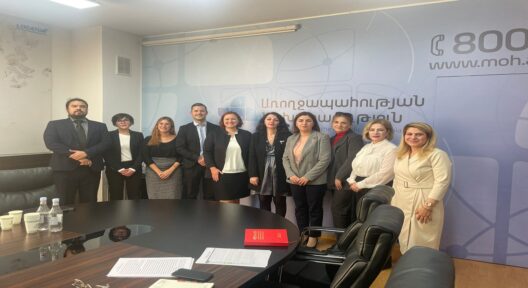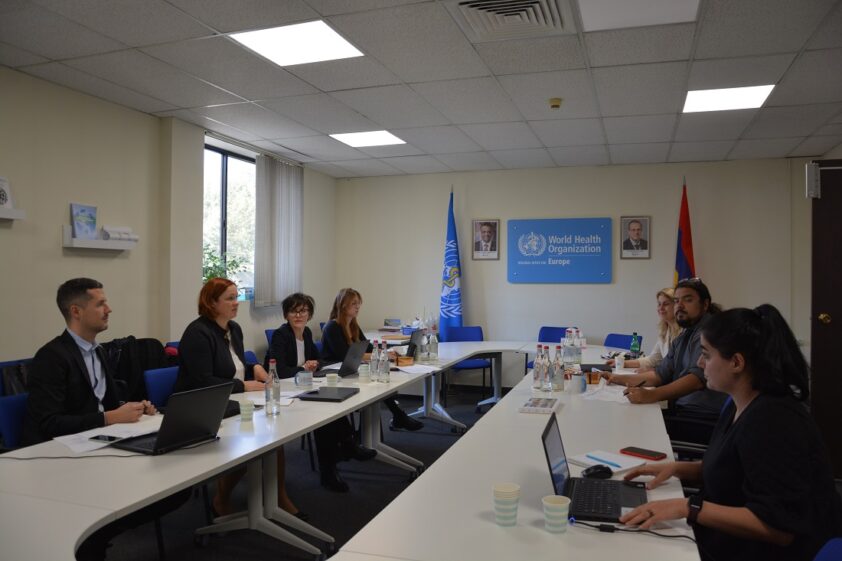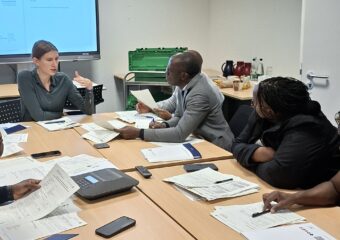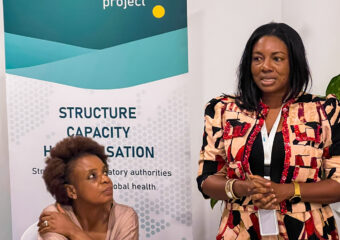Mission to Armenia for Project COVIMPACT Hepatitis
During a mission to Armenia, an RKI team collected information on the progress of hepatitis B and C elimination, as well as on the impact of the COVID-19 pandemic. Preliminary results and recommendations were discussed at the end of the mission at a workshop with a National Working Group and other stakeholders.

From 31 October to 4 November 2022, an RKI-team from the WHO Collaborating Center for Viral Hepatitis and HIV travelled to Yerevan, Armenia, for the project COVIMPACT Hepatitis “Assessing the impact of COVID-19 pandemic on viral hepatitis B and C elimination efforts in Eastern Europe and Central Asia”. During this mission, various work meetings were conducted with a dedicated National Working Group and other officials responsible for hepatitis elimination in Armenia, including the Ministry of Health, the National Center for Disease Control and Prevention, the National Centre for Infectious Diseases, the National Institute of Health, and several hospitals and NGOs.

Various aspects of the national hepatitis elimination programme and action plan were discussed and the impact of the COVID-19 pandemic was assessed. It became apparent that there is a strong political will in the country to combat hepatitis and funding was available since 2020 to treat at least 1,000 patients with chronic hepatitis C infections per year. Screening tests for hepatitis B and C were provided free of charge, but confirmatory diagnostics with PCR were associated with costs for patients. The costs of treating chronic hepatitis B infections, which in some cases were substantial, also generally had to be covered by patients themselves. Since implementation of the hepatitis B vaccination in 1999, coverage in children has been high for both the birth dose and 3 doses in childhood and was not negatively affected by the pandemic. In contrast, coverage among adults was low except among healthcare workers, even though vaccinations were free of charge for indication groups. Access to healthcare facilities was only temporarily affected during the pandemic, and the development of an electronic registry for hepatitis cases has even been accelerated in recent years.
At the end of the mission, the WHO country office for Armenia organized a workshop with participants from the National Working Group and all organizations involved in the mission. The RKI team together with the WHO Regional Office for Europe presented preliminary findings and made recommendations for scaling up hepatitis elimination in Armenia. A final report is in preparation and will be published in 2023.
Date: December 2022



